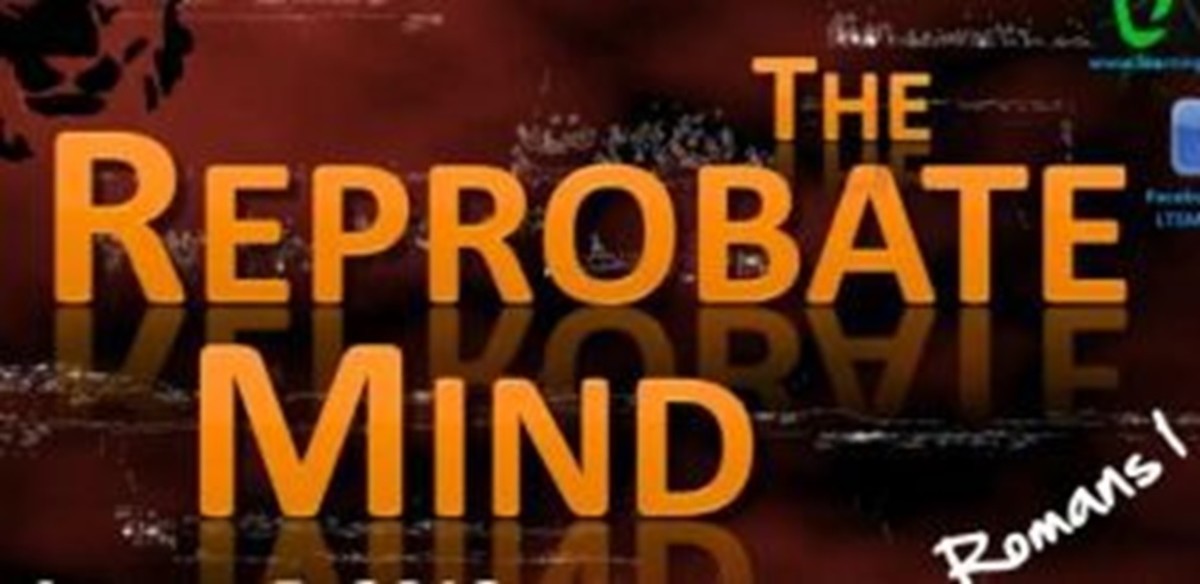Biblical Grounds for Divorce and Remarriage (Divorce and Remarriage, Episode VI)

Four Biblical Reasons for a Christian to Divorce and Remarry
It is an exercise in futility to argue that the Bible is totally against divorce and remarriage; since both Moses and Jesus allowed—both. It remains, then, for the honest Bible student to ask the question: What are the allowable causes for divorce? Once this honest question is asked sincerely, the questioner will be ready to accept the verdict of Holy Scripture.
I. Uncleanness, From The Words of Institution
First, we will consider the Words of Institution from Moses. Moses states that if the husband finds “some uncleanness” in his wife which causes her to lose favor in his eyes, he may divorce her. But what “uncleanness” is Moses speaking of?
It would be tempting to rush to judgment on this question and say: immorality. However, we would have, most likely, rushed too far, too fast—not thinking the issue through.
The Hebrew word that is here translated “uncleanness” is ʻervah (Strongʼs #OT6172) and means: disgrace, blemish; the fundamental meaning is nakedness. The word ʻervah is interpreted variously: by the conservative, as immorality; by the moderate, as any blemish in morals, character, or body which, included being barren; by the liberal, as being anything whatsoever that displeased the husband.
The real question, however, is: Does ʻervah (“nakedness”) indicate sexual immorality only? Or, does it apply to more?
It seems to this author, that since fornication (i.e. sexual immorality) called for death by stoning (see Deuteronomy 22:22) (in which case a “Bill of Divorcement” would be moot, because the offender would be dead), that a lesser incompatibility is being referenced by the word ʻervh (“nakedness”).

II. Fornication, The “Except Clause”
Second, we will consider the one cause given by Jesus for a person to divorce and remarry: namely, fornication.
Jesus said in Matthew 19:9, “... except it be for fornication.” The word “fornication” will be examined more thoroughly in a future writing, when we review Matthew 5:27-28. Here we will only note that the word “fornication” identifies a category of sin which encompasses all sexual improprieties. Over the years, one could hear preachers thunder from their pulpits that fornication could only be committed by unmarried persons. Operating from this premise it was taught that Jesus limited divorce to a man who married a woman, and during the wedding night discovered that she was not a virgin. However, this whole concept proves unfounded when one discovers that fornication is any and all sexual sin. Fornication has many different forms, all of which are grounds for divorce and remarriage. For instance, one may be guilty of fornication by viewing pornography. (In fact the English word “pornography” is from the Greek word porneia: the very word translated “fornication.”) Further, a married person commits fornication (the species of fornication in this case would be adultery) by lusting for a person who is the spouse of another (see Matthew 5:27-28). Therefore fornication is not limited to premarital sex between a man and a woman. In fact, fornication is not limited to sexual intercourse between a man and a woman—married or otherwise, but extends to embrace any and all sexual infractions of biblical mores.
Further, when the Apostle Paul frees a brother and/or sister from their marriage contract on the grounds of abandonment (see 1 Corinthians 7:15 known as The Pauline Privilege), the underlying cause is sexual fraud (see 1 Corinthians 7:3-5), which, by being a sexual sin, is a species within the category of fornication.
Permit me to explain. Included in the context of 1 Corinthians 7 is the proper sexual relationship between a man and a woman. Paul is here addressing those in mixed marriages. (A mixed marriage is when one spouse is a Christian and the other is not.) However, his instruction applies to all marriages, mixed of otherwise. Paul begins his instruction by naming the sin of fornication as an evil to be avoided. In verse 2 Paul writes: “...to avoid fornication, let every man have his own wife, and let every woman have her own husband” (1 Corinthians 7:2). The Apostle proceeds (in verses 3 and 4) to establish the physical claim oneʼs spouse has upon the body of the other, in regard to sexual fulfillment. Then, in verse 5, the Apostle identifies the withholding of sexual relations from oneʼs spouse as fraud: “Defraud you not one the other, ... come together again, so that Satan tempt you not for your incontinency” (lack of self control).
The word, from the Greek, rendered “defraud” is apostereo (Strongʼs #NT650) meaning: to despoil:—defraud, kept back by fraud. One of the definitions of fraud is: to cheat. When we hear that so-and-so cheated on his spouse, we normally think of the sin of adultery (which is fornication), but to defraud oneʼs companion of his or her sexual need is also cheating—it is a sexual transgression; therefore, fornication.
Following this argument through, Paul instructs the Christian not to defraud his or her companion in the marriage bed, and to remain married as long as the unbelieving is “pleased” to do so (see verses 12, 13). However, if the unbeliever departs, the Christian is free from the marriage contract. Two fundamental elements are assumed by Paul:
• First, that the departed is no longer fulfilling his or her sexual obligations to the believer—which constitute sexual fraud, i.e. cheating; and
• Second, that the departed has joined his or herself to another sexual partner.
Either of these two is fornication, and grounds for a Certificate of Divorce—which allows remarriage.

III. For The Sake Of The Kingdom
Third, Jesus taught that some of His disciples would have occasion to leave their wives for the sake of the Kingdom of God; if so they would have the loss restored in this life. (See Mark 10:29-30 and the parallel passage Luke 18:29-30.)
Mark 10:29-30 “...Verily I say unto you, There is no man that hath left house, or brethren, or sisters, or father, or mother, or wife, or children, or lands, for my sake, and the gospel’s sake, But he shall receive an hundredfold now in this time, ...”
Luke 18:29-30 “...Verily I say unto you, There is no man that hath left house, or parents, or brethren, or wife, or children, for the kingdom of Godʼs sake, Who shall not receive manifold more in this present time, and in the world to come life everlasting.”
In both of the above passages it is the disciple who left the wife for the Gospelʼs sake. The Greek word is aphiemi (Strongʼs #NT863) meaning: forsake, lay aside, leave, put away, et cetera. One cannot doubt that the idea of divorce is implied here. It is quite possible that Jesus is recalling the teaching of the rabbis, which allowed that if a man went to war he was to give his wife a certificate of divorce which would free her to go to another man if he did not return in a reasonable amount of time. (The Jewish tradition applies this law in the case of Uriah with Bathsheba [2 Samuel 11]. In this way the Jewish sages avoid adultery on the part of King David.) The rabbis were strict about the length of time a man could abstain from sexual relations with his wife, before he had to divorce her in order for her to seek the bed of another. According to the school of Shammai one could abstain for two weeks; according to the school of Hillel—one week. (Both Shammai and Hillel were contemporaries to Christ.) A little more than one thousand years later a great Jewish sage called Rambam (Moses Maimonides of Cordova Spain, 1135-1204) writes thusly: “Let him keep his vow for one week only. But if he will keep it longer, let him put her away (divorce) and give her a dowry. But they say, Let the scholars go forth to learn the law, even without the permission of their wives for thirty days. These, indeed, are the words of R. Eliezer. But according to the wise men, it is lawful for two or three years: and the tradition is according to the wise men.”
From these great Jewish sages (Shammai, Hillel, Rambam, and Eliezer) the tradition of divorcing oneʼs wife, if separation was necessary for a prolonged period of time, is established. Jesus did not live nor teach in a vacuum; His teaching, much of the time, addressed contemporary thought.
At any rate, Jesus mentions wives, along with other family members, that become lost to the disciples because of the demands of the Kingdom. Jesus continues to assure the disciples that these things (and people) given up by them would be restored. (The mention of “an hundredfold” is hyperbole, to emphasize the surety of Godʼs provisions.) The promise of the restoration of a wife should be seen in context of the restoration of the other items in the list: namely, the lands restored are not the lands lost; the house restored is not the house lost; the family members restored are not the ones lost, but other persons who become brothers, sisters, mothers, and fathers; likewise, the wife restored is another woman rather than the one put away for the Gospelʼs sake.
It seems, to this author, that the conclusion is inescapable: namely, Jesus taught that a disciple may be called upon to put away a wife for the sake of the gospel. If so, the Lord would replace her with a wife that is better, in her faithfulness to both God and the disciple. Therefore, Jesus seems to allow for one to divorce his wife for the Gospelʼs sake. (Jesusʼ teaching; the Rabbisʼ ruling: i.e. Shammai, Hillel, Rambam, R.. Eliezer; and The Pauline Privilege seen to all be connected).
This, then, raises an all-important question: “Does this mean that Jesus allowed for divorce and remarriage for more reasons than fornication?” And, yet, another question: “If Christ allows divorce and remarriage for the Gospelʼs sake, what about the Except Clause of Matthew 19:9.” Both questions are addressed by acknowledging Jesusʼ use of hyperbole in his teachings. (That the Except Clause of Matthew 19:9 is most likely hyperbole is discussed in an up coming article.)

IV. The Unlawful Marriage
Fourth, and finally, the matter of the Unlawful Marriage must be considered. For this we need to look to the scribe/priest Ezra from the Old Testament, and the Apostle Paul from the New Testament.
In the book of Ezra, chapter 10, verse 2 through 44 we find the traumatic drama unfolding of a forced nationwide divorce of all women (along with their children) who were not Jewish by birth. The Bible reads:
Verse 2. “Shechaniah the son of Jehiel, one of the sons of Elam, answered and said unto Ezra, We have trespassed against our God, and have taken strange wives of the people of the land: yet now there is hope in Israel concerning this thing. 3. “Now therefore let us make a covenant with our God to put away all the wives, and such as are born of them, according to the council of my lord, and of those that tremble at the commandment of our God; and let it be done according to the law. 4. “Arise; for this matter belongeth unto thee: we also will be with thee: be of good courage, and do it. 5. “Then arose Ezra, and made the chief priests, and Levites, and all Israel, to swear that they should do according to this word. And they sware.” … 10. “And Ezra the priest stood up, and said unto them, Ye have transgressed, and have taken strange wives, to increase the trespass of Israel. 11. “Now therefore make confession unto the LORD God of your fathers, and do his pleasure: and separate yourselves from the people of the land, and from the strange wives. 12. “Then all the congregation answered and said with a loud voice, As thou hast said, so must we do.” … 44. “All these had taken strange wives: and some of them had wives by whom they had children.”
The people of the covenant had taken wives from the Gentile peoples around them, in direct violation of Godʼs word: “Neither shalt thou make marriages with them; thy daughter thou shalt not give unto his son, nor his daughter shalt thou take unto thy son” (Deuteronomy 7:3).
The wives were unlawful, because the Word of God forbade such marriages. Thus, an unlawful spouse is cause (grounds) for a Biblical divorce—which is a license to remarry. This may well have been the question on the minds of the Corinthian Christians (1 Corinthians 7), when they asked Paul about living with, or leaving (putting away), their unbelieving companions. No doubt their Apostleʼs teaching about not being unequally yoked together (2 Corinthians 6:14), and his admonition against righteousness having fellowship with unrighteousness (same verse), laid heavily on their minds. However, their circumstances were different, as Paul pointed out. In the case of Ezraʼs people, the sons of God had placed themselves in an unholy marriage by contracting with women that were not worshipers of the one true God—or at least not, themselves, born into the covenant. The Christians at Corinth were married while yet unbelievers; after which one of a couple converted to Christ. The situations were not the same between the Israelite of Ezraʼs day and the Christian of Paulʼs. Indeed, if the disciple of Christ binds him or herself to an unbeliever by a marriage contract, he or she has bound themselves to an unlawful marriage. In such a case the injunction of Ezra chapter 10 would be appropriate—even in the Lordʼs Church.
Paul does, in fact, deal with an unlawful marriage in the church at Corinth; this is found in 1 Corinthians 5:1-8. In verse one Paul writes: “It is reported commonly that there is fornication among you, and such fornication as is not so much as named among the Gentiles, that one should have his fatherʼs wife.”
The sexual union between a man and his stepmother (the man, at least, was a member of the Corinthian church) was obviously a state of marriage in that their relationship was “commonly” reported: the situation had been persisting in the church for some time.
This particular type of relationship was unlawful, in that it was incest. The law of Moses states:
“A man shall not take his fatherʼs wife, nor discover his fatherʼs skirt.” (Deuteronomy 22:30).
And,
“The nakedness of thy fatherʼs wife shalt thou not uncover: it is thy fatherʼs nakedness.” (Leviticus 18:8).
And,
“And the man that lieth with his fatherʼs wife hath uncovered his fatherʼs nakedness: both of them shall surely be put to death; their blood shall be upon them.” (Leviticus 20:11).
In the case at Corinth Paul was demanding the dissolution of the incestuous marriage. Obviously, a divorce was not only suggested by Paulʼs comment—but, insisted upon. We may feel confident that his instructions were carried out; for in his next letter to the Corinthians he writes (concerning this very episode): “Sufficient to such a man is this punishment,” (Greek: censure) “which was inflicted of many. So that contrariwise you ought rather to forgive him, and comfort him, lest perhaps such a one should be swallowed up with overmuch sorrow. Wherefore, I beseech you that ye would confirm your love toward him” (II Corinthians 2:6-8).
In conjunction to this episode in Corinth, one should consider Herod Antipasʼ marriage to Herodias. Herodias had been the wife of Philip, the brother of Herod Antipas. Plus, she was the daughter of a third brother: making her the niece of both husbands. This marriage was unlawful in that the law of Moses stated: “Thou shalt not uncover the nakedness of thy brotherʼs wife: it is thy brotherʼs nakedness.” (Leviticus 18:16 cf 20:21.)
The only exception to this is in the event that a man died and left no heir; then it would follow that his brother next to him was to raise up seed in behalf of his dead brother; such an arrangement is the levirate marriage instituted by Deuteronomy 25:5. (In the case of the levirate marriage it could be effectively argued that the parties were free from incest because the brother was dead.)
Since the marriage of Antipas and Herodias did not enjoy the dispensation of the levirate marriage, John the Baptist could preach with such conviction: “... It is not lawful for thee to have her.” (Matthew 14:4) Surely, an unlawful spouse is to be “put away.”
Therefore, Ezra, John the Baptist and the Apostle Paul denounced unlawful marriages and demanded their dissolution. Since a “Bill of Divorcement” is the only legal means to dissolve the marriage contract while both parties remain living, it is established that an unlawful marriage is biblical grounds for divorce; and, a Biblical divorce frees all parties to remarry.
Summary
To summarize the biblical grounds for divorce and remarriage the following factual information is considered:
1. The Words of Institution (Deuteronomy 24: 1-4) names ʻervah (nakedness; KJV uncleanness) which must imply a lesser incompatibility than sexual immorality, since that would call for death, in which case a “Certificate of Divorcement” would be a moot point (see Deuteronomy 24:1-4 cf 22:22).
2. The Except Clause of Matthew 19:9 (i.e. “except it be for fornication”) includes all sexual sin including sexual fraud referred to in the Pauline Privilege (1 Corinthians 7:5-15), and because of all the other grounds given in the Word of God: the Except Clause is in all probability a hyperbole.
3. Jesus indicated that some disciples would leave (Greek, aphiemi: forsake, lay aside, leave, put away: Strongʼs #NT 863) their wives “for the kingdom of Godʼs sake” (Mark 10:29-30//Luke 18:29-30). The words of Christ here are in harmony with the rabbinical thought of the Talmud as expressed by Shammai, Hillel, Rambam, R. Eliezer. Jesus, further, promised that wives “put away” “for the kingdom of Godʼs sake” would be replaced “in this life” by another—that would be better than the former. Moreover, the Pauline Privilege sets free the Christian who is abandoned by his or her unbelieving spouse (1 Corinthians 7:15).
4. The Unlawful Marriages recorded in the accounts of: Ezra ordering a national divorce of all Gentile women (Ezra chapter 10), the preaching of John the Baptist against the incestuous marriage of Herod Antipas with Herodias, and the admonition of Paul concerning the Christian man who was married to his fatherʼs wife (1 Corinthians 5:1-8), are all proofs that unlawful marriages are to be dissolved by the instrument of a “Certificate of Divorce.”
Having demonstrated the above to be true, the least that may be said is that: The grounds for divorce extends beyond extramarital sexual intercourse.
Apostolically Speaking
☩ Jerry L Hayes
Own this amazing book by Bishop Jerry. Click below for more information.

Read More From the Bishop on Divorce and Remarriage
- Christian Divorce and Remarriage, Episode I
This series of articles answers the all consuming question: May a Christian divorce and remarry? This is the first of many article to come on the subject. Be sure to read them all. - Christian Divorce and Remarriage, Egalitarian (Episode II)
This article concludes the introduction to Christian Divorce and Remarriage. Here is discussed the egalitarian aspect of Divorce. - Marriage, As God Intended (Episode III, Christian Divorce & Remarriage)
This article examines the intention of God for marriage, in the beginning. What the Bible declares marriage to be is shocking to most. This is required knowledge for an understanding of divorce. - Divorce and Remarriage, Words of Institution (Episode IV)
Moses sets forth the "Words of Institution" for divorce and remarriage. In this writing we will review those words in an expository study. - Certificate of Divorce (Diviorce and Remarriage, Episode V)
Here, for the first time we discuss the power of the "Certificate of Divorce" as a licenses to remarry - both for the guilty and innocent parties. - Yahweh Hates Divorce? (Divorce and Remarriage, Episode VII)
Since the Bible states that God hates "Putting Away," it is important to harmonize this with God allowing divorce, and participating in it Himself. This article addresses that particular issue. - Biblical Examples of Divorce, Episode VIII
Examples are great teachers. A greater lesson can not be had that to witness how a biblical command was biblically executed. IN this study we will see just that in biblical examples of divorce. - The Biblical Status of the Divorcee, Episode IX
In this 9th episode on Divorce and Remarriage we examine the status of divorcees in the Bible. Here we answer the question: "What place does the divorced person hold in biblical society?" - The Words of Jesus On Divorce, Episode X
This article introduces all the words of Jesus concerning the subject of divorce. By this introduction of Christ's teaching on the subject we set a compass heading for further study. - The Apostolic Church, On Divorce - Episode XI
In this episode on divorce and remarriage we examine what the apostolic church (the Lord's church of the 1st century) had to say on the subject.







